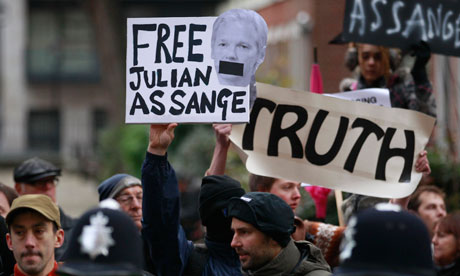NYTimes | The incident has uncovered a gaping cultural disconnect between the world’s two largest democracies. While Americans reflexively came to the defense of a maid who the authorities said was subjected to abuse, Indians reflexively sympathized with the diplomat.
This is partly because middle- and upper-class Indians typically have their own servants, who often work long hours for far less than the $573 a month that Ms. Khobragade had promised to pay. But the bigger reason, especially compelling in an election year, is national pride. In the month that has passed since Ms. Khobragade’s arrest, she has been transformed into a symbol of India’s sovereignty, pushed around and humiliated by an arrogant superpower.
“There is always this sense, since the end of the Soviet Union, that America is too big for its britches,” said Sandip Roy, senior editor at Firstpost, a news website. “What happened to Devyani is seen in a larger, cosmic sense as that kind of unilateral thing, like, ‘I will go and invade Afghanistan, and I don’t care what anyone thinks.’ ”
The dispute was brought to a rapid finish in the last 72 hours, in what appeared to be an effort by American officials to relax tensions.
Daniel N. Arshack, Ms. Khobragade’s lawyer in New York, agreed that once negotiations with prosecutors broke down last weekend, “this week turned into a focus on diplomatic solutions.” Mr. Arshack said that his client’s husband, a college professor, and two young daughters, ages 4 and 7, who are all American citizens, had remained in New York.
The domestic worker, Sangeeta Richard, told prosecutors that she was forced to work about 94 to 109 hours a week, with limited breaks for calls and meals, according to an indictment handed up in Federal District Court in Manhattan. Last summer, it said, Ms. Richard told Ms. Khobragade she was unhappy with the work conditions and wanted to return home, but her employer refused the request and would not return her passport.
Ms. Khobragade was arrested Dec. 12 when she was dropping off her daughters at school, and charged with misrepresenting Ms. Richard’s pay to obtain a work visa for a housekeeper. Indian newspapers reported that she was strip-searched, something Indians found especially offensive, and then kept in a police holding pen with drug addicts before being released on bond. India responded with a raft of retaliatory steps, including the removal of security barriers around the embassy in New Delhi, and the case was the lead story in the Indian news media for weeks.
On Wednesday, India granted Ms. Khobragade the full immunity and privileges of a diplomat, a set of rights not accorded those posted in consulates, as she was at the time of the arrest. Though the United States appealed to India to waive that immunity, India refused, and transferred her to a new position at the Foreign Ministry in Delhi. The State Department then told her to leave the United States, which she did Thursday night.
Ms. Khobragade’s father, Uttam Khobragade, said that his daughter was under strict orders not to give interviews, but told an anecdote that suggested she left with bitter feelings — toward Ms. Richard, toward Ms. Richard’s husband and toward the United States government.
“Devyani was seen off at the airport by an official of the State Department,” he told reporters Friday morning. “He told Devyani that, ‘Madam, I am sorry, and it was wrong.’ She told the official, ‘You have lost a good friend. It is unfortunate. In return, you got a maid and a drunken driver. They are in, and we are out.’ ”







